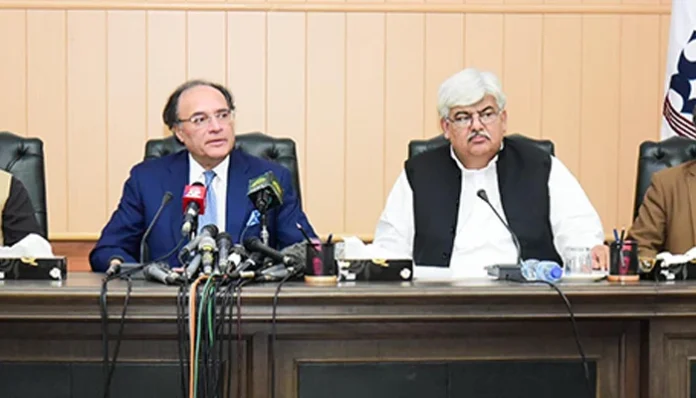ISLAMABAD: In a bold move to strengthen Pakistan’s economic framework, Federal Finance Minister Muhammad Aurangzeb announced the government’s plan to raise the tax-to-GDP ratio from the current 9-10% to an impressive 13% within three years. Speaking at a press conference in Islamabad alongside Minister of State Ali Pervez Malik and Federal Information Minister Attaullah Tarar, Aurangzeb outlined a transformative agenda focused on digitalization, fairness, and structural reforms.
Digitalization and Reform: A New Era for Tax Compliance:
Aurangzeb highlighted that technology is at the heart of the government’s tax reform strategy. A new tax amendment bill has already been tabled in Parliament, aiming to reduce human intervention in the Federal Board of Revenue (FBR). This move is expected to curtail corruption and harassment while streamlining tax collection.
“We are working on digitalization and minimizing human involvement to ensure better compliance and efficiency,” said Aurangzeb. The digital transformation, initiated in March, is set to increase revenue, reduce tax gaps, and ensure a fair distribution of the tax burden across all sectors of society.
Targeting Tax Gaps in Key Industries:
The Finance Minister also announced plans to review the value chains of critical industries such as sugar, beverages, and cement to address tax leakages. He assured that honest taxpayers would not face undue pressure, with reforms designed to spread the tax burden equitably.
Aurangzeb reaffirmed the government’s commitment to achieving a tax-to-GDP ratio exceeding 13.5% within three years, calling the initiative vital for Pakistan’s economic stability.
Ali Pervez Malik: Tackling Inflation and Expanding the Tax Net:
Minister of State Ali Pervez Malik addressed the impact of inflation, describing it as “the largest tax on ordinary citizens.” He noted that inflation has dropped significantly from 30-40% to around 5%, with its positive effects beginning to reach the public.
Malik emphasized that curbing fiscal deficits is essential for sustained inflation control. He also revealed that the government has identified 190,000 individuals who should be brought into the tax net, ensuring wealthier citizens contribute their fair share.
“The goal is for the wealthiest to support the economy through equitable taxation,” Malik stated, adding that robust data systems now monitor taxpayers and defaulters more effectively.
The Bigger Picture: Economic Stability Through Fair Taxation:
The press conference highlighted the government’s comprehensive approach to reforming Pakistan’s tax system. From capacity-building efforts within the FBR to reducing fiscal deficits and implementing fair taxation policies, the roadmap aims to strengthen economic stability while alleviating the burden on ordinary citizens.
As the government embarks on this ambitious journey, the focus on transparency, digital innovation, and equity could pave the way for a more sustainable and inclusive economic future for Pakistan.




